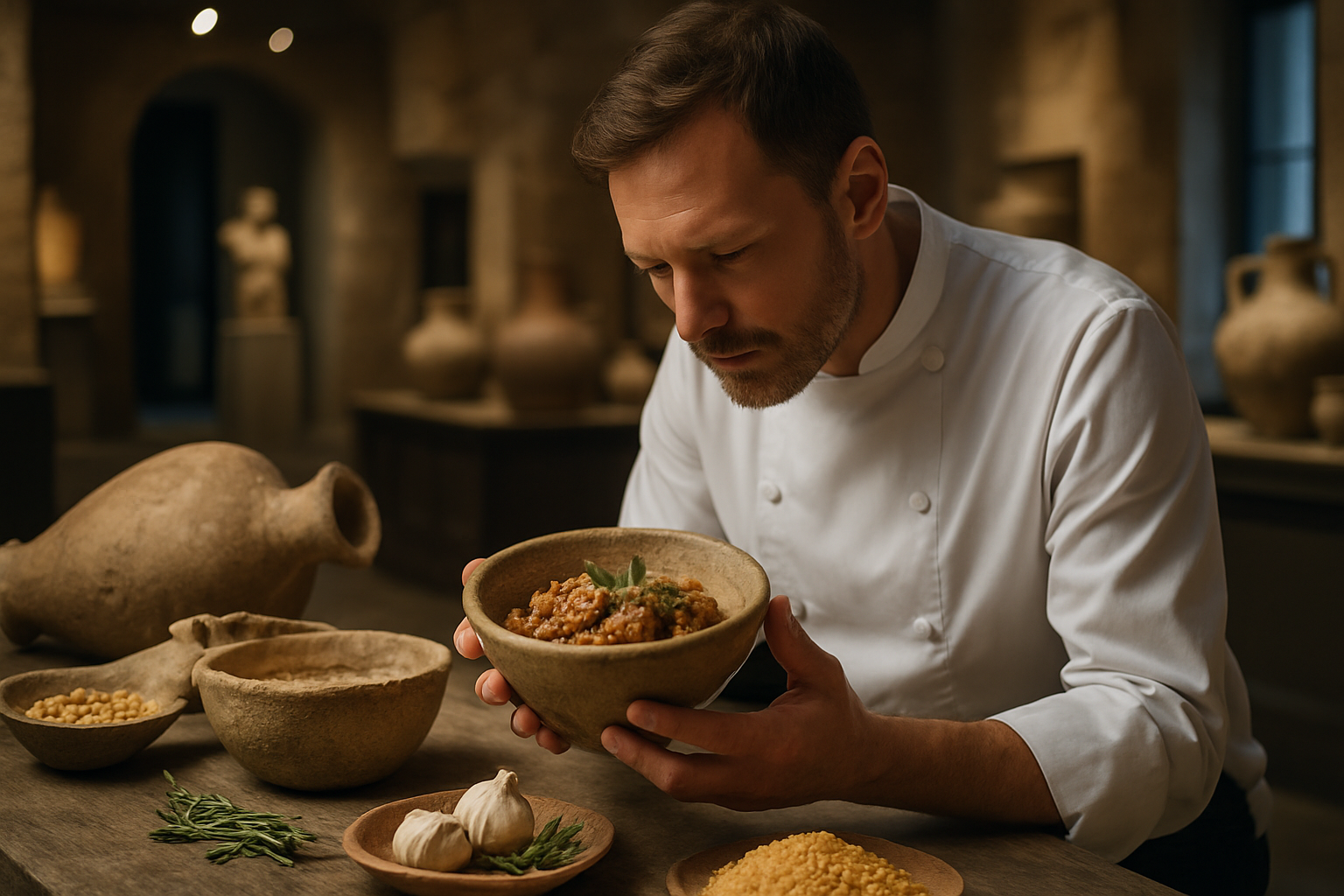Flavor Archaeology: Unearthing Ancient Tastes
Embark on a culinary journey through time as we explore the fascinating world of flavor archaeology. Discover how scientists and chefs are recreating ancient recipes, unearthing forgotten ingredients, and reviving lost tastes from civilizations long past. This delectable fusion of history and gastronomy promises to tantalize your taste buds and expand your culinary horizons.

The Science Behind Taste Reconstruction
Reconstructing ancient flavors is no simple task. It requires a multidisciplinary approach that combines archaeological evidence, chemical analysis, and culinary experimentation. Researchers use advanced techniques such as gas chromatography-mass spectrometry to identify trace compounds in pottery shards and other artifacts. This data, combined with information from ancient texts and botanical studies, allows them to deduce the ingredients and cooking methods used in bygone eras. Skilled chefs then take this information and recreate dishes using modern ingredients and techniques, bringing the flavors of the past into the present.
Ancient Ingredients, Modern Twists
As flavor archaeologists uncover forgotten ingredients, innovative chefs are incorporating these rediscovered flavors into contemporary cuisine. Ancient grains like einkorn and emmer are making a comeback, prized for their unique textures and nutritional profiles. Long-lost herbs and spices, such as silphium from ancient Cyrene, are being substituted with modern alternatives to recreate their distinctive tastes. This fusion of ancient and modern creates exciting new culinary experiences, allowing diners to explore the flavors of history while enjoying the comforts of contemporary gastronomy.
Time-Traveling Taste Buds
Flavor archaeology isn’t just about recreating ancient recipes; it’s about understanding the cultural and historical context of food. By tasting dishes from different eras and civilizations, we gain insight into the daily lives, trade routes, and culinary preferences of our ancestors. From the sweet and sour flavors of ancient Chinese cuisine to the spice-laden dishes of medieval Europe, each bite tells a story of human ingenuity and cultural exchange. This sensory exploration of history offers a unique perspective on the evolution of taste and the role of food in shaping societies.
The Future of Flavor from the Past
As flavor archaeology continues to evolve, it promises to revolutionize our understanding of food history and inspire new culinary innovations. Chefs and food scientists are using insights from ancient cuisines to develop sustainable food solutions for the future. By rediscovering forgotten crops and traditional preservation techniques, we can diversify our food systems and improve nutritional outcomes. The field also opens up new avenues for culinary tourism, with restaurants and museums offering immersive historical dining experiences that transport guests through time and taste.
Tasty Time Capsules: Tips for Exploring Ancient Flavors
-
Visit living history museums that offer authentic period cuisine
-
Experiment with ancient grains like quinoa, amaranth, and teff in your cooking
-
Try recreating simple ancient recipes, such as Roman bread or Babylonian stew
-
Explore the use of traditional herbs and spices in your dishes
-
Attend lectures or workshops on food history and archaeology
-
Read books on historical gastronomy to deepen your understanding
-
Support restaurants and chefs who incorporate ancient flavors into their menus
Flavor archaeology offers a thrilling opportunity to experience the tastes of the past and gain a deeper appreciation for the rich tapestry of human culinary history. By exploring these ancient flavors, we not only satisfy our curiosity but also open our palates to new and exciting taste experiences. As we continue to unearth the secrets of bygone cuisines, we enrich our understanding of culture, history, and the timeless art of gastronomy. So, take a bite out of history and let your taste buds travel through time – you never know what delicious discoveries await!






